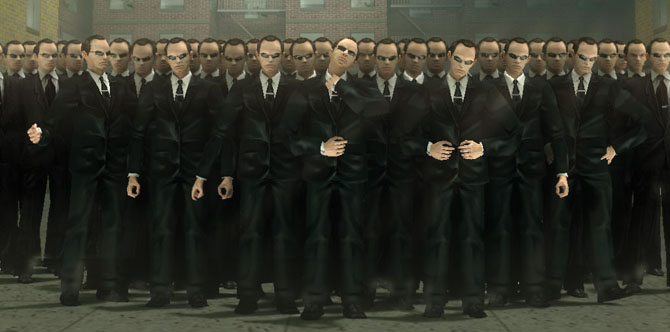Everyone agrees that the prime minister works too hard. Everyone agrees that he sleeps a lot less than he should because of that. But, I don’t know anymore what words to use to ask the prime minister to take a break and have some sleep. Someone should tell him that he’s not alone in the world. And that not all of the world’s worries are his to solve. For example, if he had a bit of sleep, I am sure that the prime minister would write a more polite letter to OSCE representative Dunja Mijatovic. If he had written the letter in the evening, got some sleep and then read it again in the morning, it’s possible that he wouldn’t have sent it. Well, these are all speculations. Maybe the prime minister quite intentionally wanted to show us that he talks to the others the same way he addresses us. If that is true, I would say that it is not good news, and this short comment on the prime minister’s letter will try to show why I feel that way.
The letter consists of six paragraphs of different length. In the first three paragraphs the tone of the letter is more or less the same and, one could say, polite. As is customary with this kind of letter, the author addresses the addressee with confidence that there is no malice in the addressee’s actions. With regard to that, the author also wishes to ensure the addressee that he too means well. Basically, there was a misunderstanding and the author, in good faith, wishes to solve that misunderstanding. Of course, it is about the OSCE statement on the repression of freedom of speech and censorship in Serbia. The prime minister is certain that the OSCE representative, addressee of the letter, rashly believed the “lies” about the hacking of two national web sites and needlessly jumped to point that out as an unacceptable practice.
At first glance, everything is all right with these three paragraphs. Except for the prime minister’s confession that he “was forced” to personally check “all the allegations” from the statement, because he was hurt by the “harsh words” and accusations that the OSCE said about Serbia. True, the prime minister himself sad that his action was unorthodox, but probably presumed that both the addressee and the citizens of Serbia would understand the reasons why he checked everything personally and then wrote the letter, given the severity of the accusations. This is all written in the second paragraph and the third one describes the way the prime ministers checked the allegations. He simply asked the addressee to present the evidence about hacking of the web sites and, since evidence was not provided, his inquiry ended with the conclusion that nothing happened.
Since he checked everything himself and, in such a unique manner, promptly concluded that the evidence didn’t exist, since the addressee failed to present them, it is justified for the prime minister to change his tone in the following three, somewhat longer paragraphs: the prime minister transformed from a well-hearted correspondent into a preacher overwhelmed with righteous wrath. “I don’t want to believe”, said the prime minister in loud voice to the addressee, “that you gathered the information in the most amateur way possible, from one of the web sites that normally conducts a dirty campaign against their government”. The thrice repeated rhetorical “I don’t want to believe” turned into plain threats, the usual manner of the prime minister, in the last paragraph. From a confused person from the first three paragraphs, the addressee transformed into a strong and powerful leader of the “campaign of lies” who insults the free and democratic Serbia. And not only that, in the last paragraph, “the harsh words” against Serbia turn into a part of “the dirtiest campaign” of the addressee against the prime minister himself, at home and abroad.
After reading the letter, any reader could ask himself whether it was written by the same person. If so, then the reader would probably want an explanation on which terrible thing happened between the third and the fourth paragraph, which caused such a sudden change of tone. Also, what happened during those couple of paragraphs that turned a well-hearted, but naive and easily fooled addressee, into an arch villain leading a hostile campaign against the prime minister? We can only speculate whether the prime minister was receiving information while he was writing the letter, so each new piece of information lead to the change of the tone.
I am aware how moody and easily annoyed the prime minister is, but after having read the letter, I realized that he knows a lot about hacking. So, hoping that I will avoid the wrath that fell upon the OSCE representative, I would like to ask the prime minister to investigate what happened to Pescanik’s website during the night between June 1st and 2nd. Let me say immediately that I am certain that the prime minister himself didn’t hack it, just like I believe that neither did the government of Serbia (the prime minister made this clear to his correspondent regarding the other two websites – there are no evidence that the government of Serbia hacks websites, wrote the prime minister). However, someone certainly did and, if no one else is in charge or competent to deal with this, I would like to ask the prime minister to pay some attention to this issue.
Translated by Marijana Simic
Peščanik.net, 04.06.2014.
- Biografija
- Latest Posts
Latest posts by Dejan Ilić (see all)
- Greška bi nas spasila - 23/04/2024
- Everyone keeps talking about Banjska - 20/04/2024
- Bojkot - 19/04/2024



